Choose options
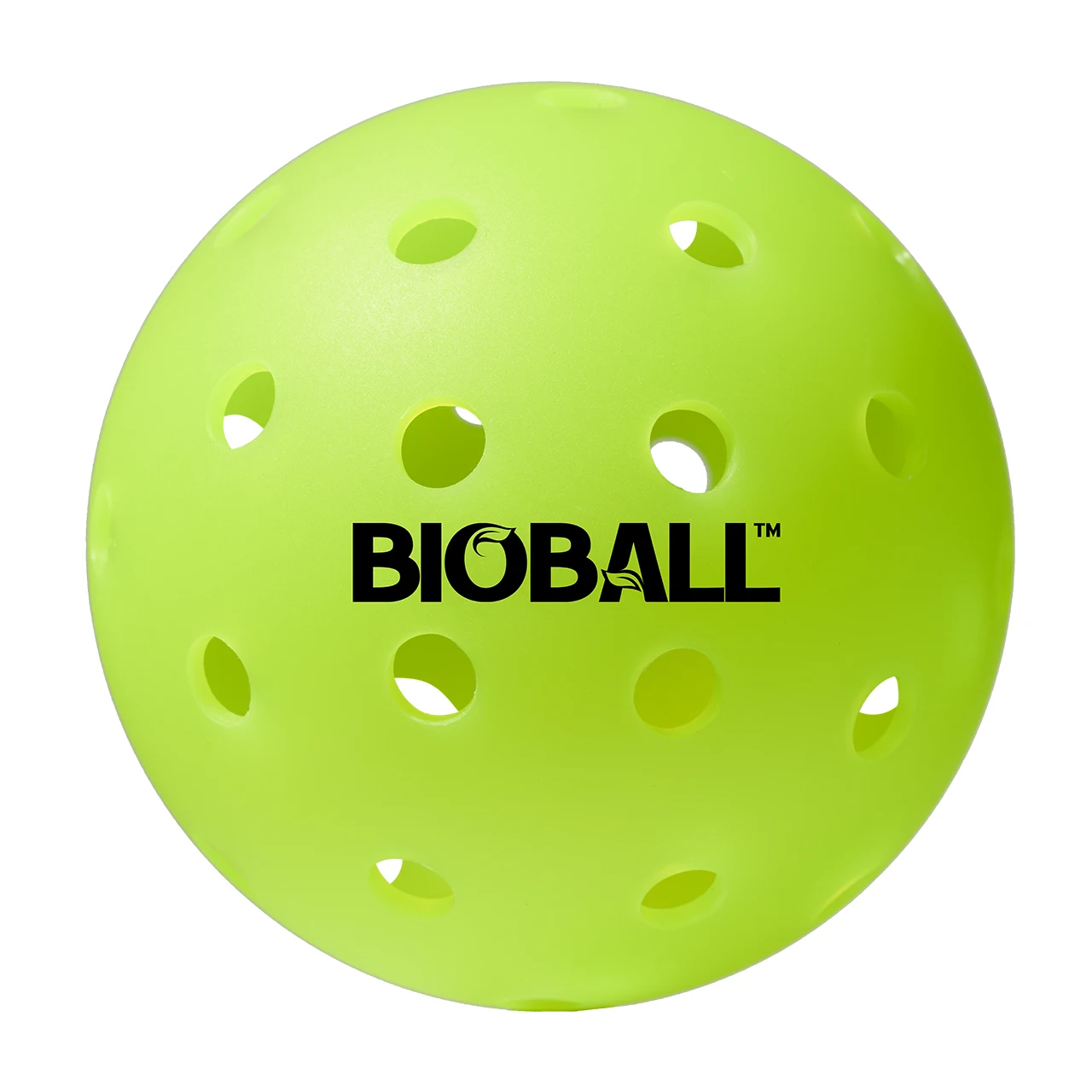
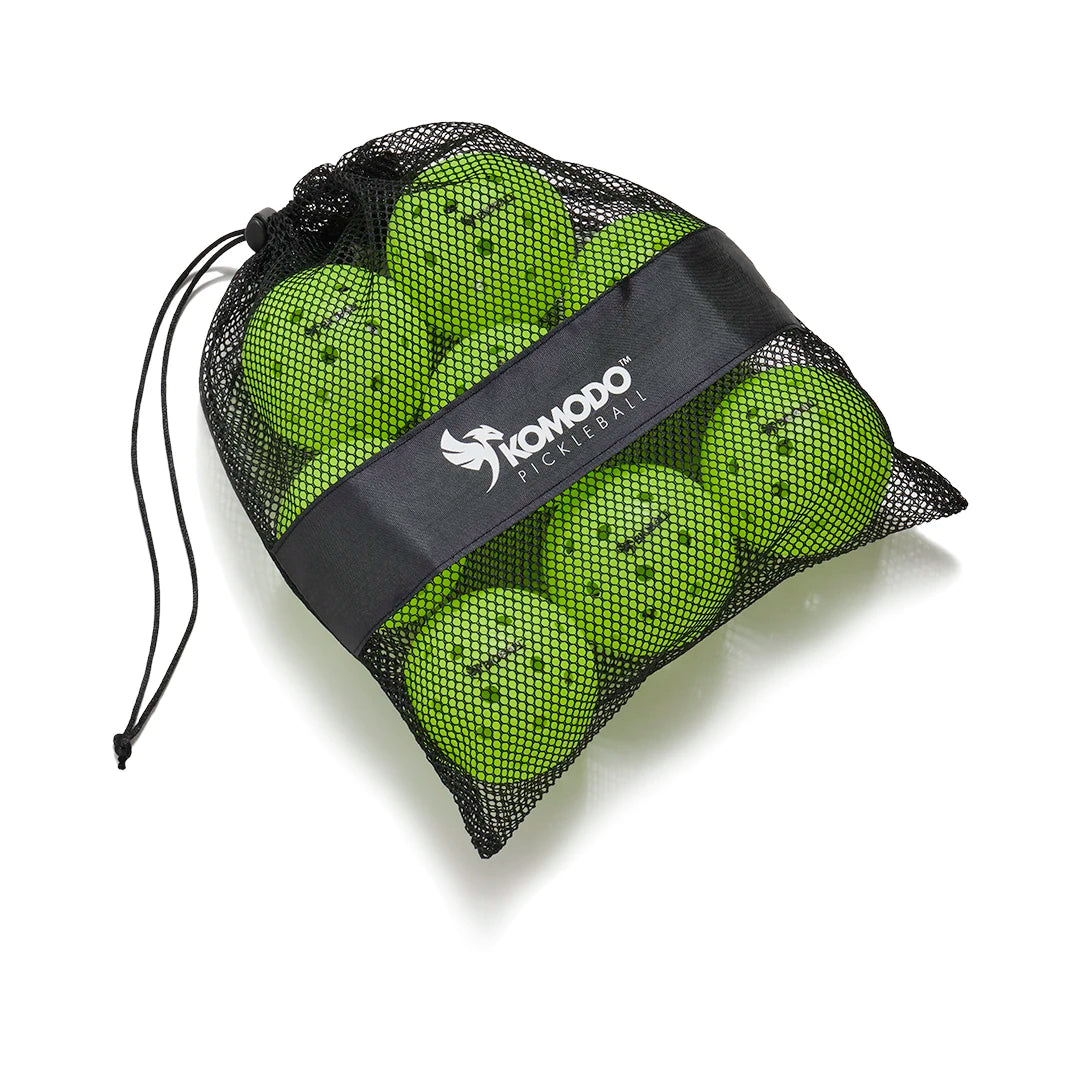
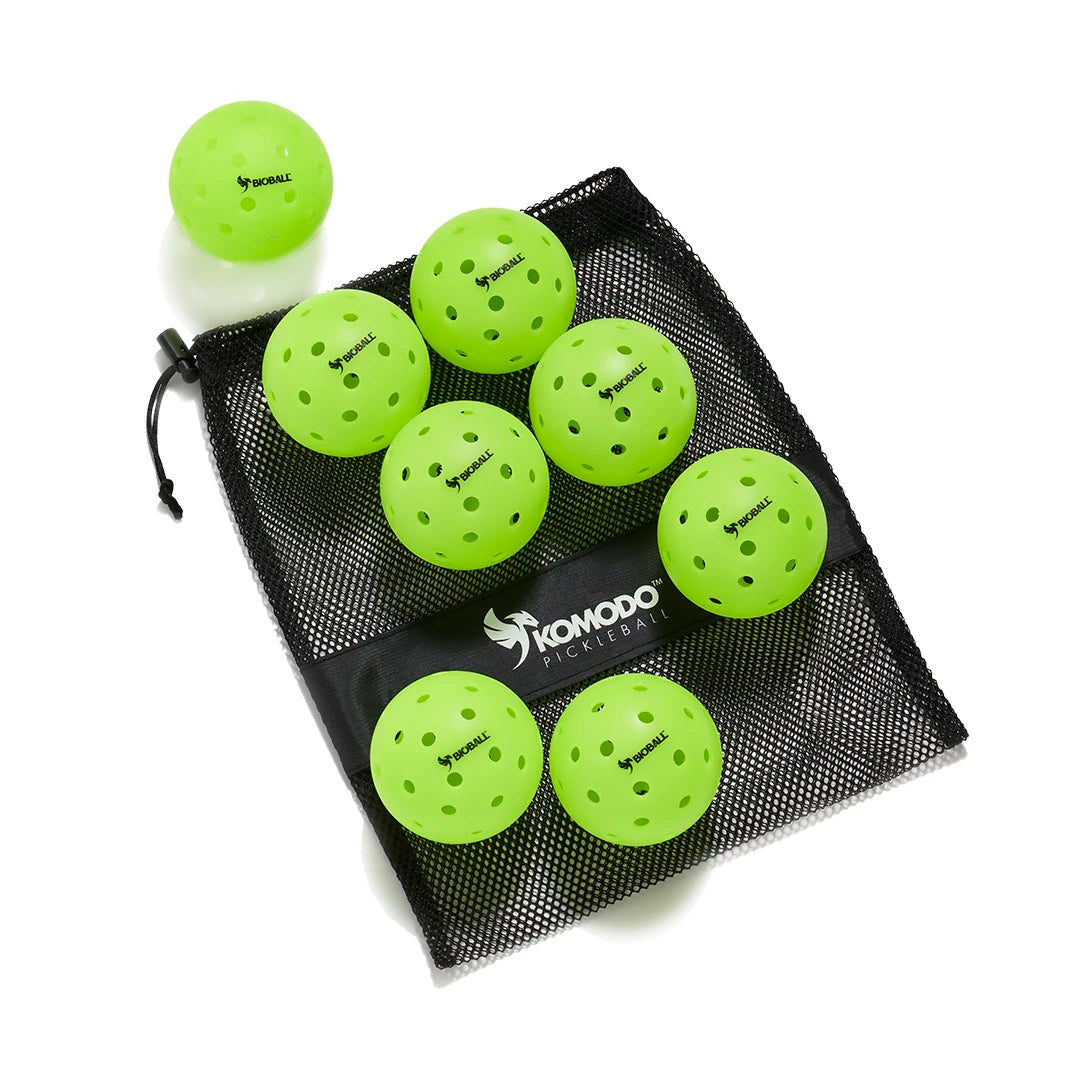
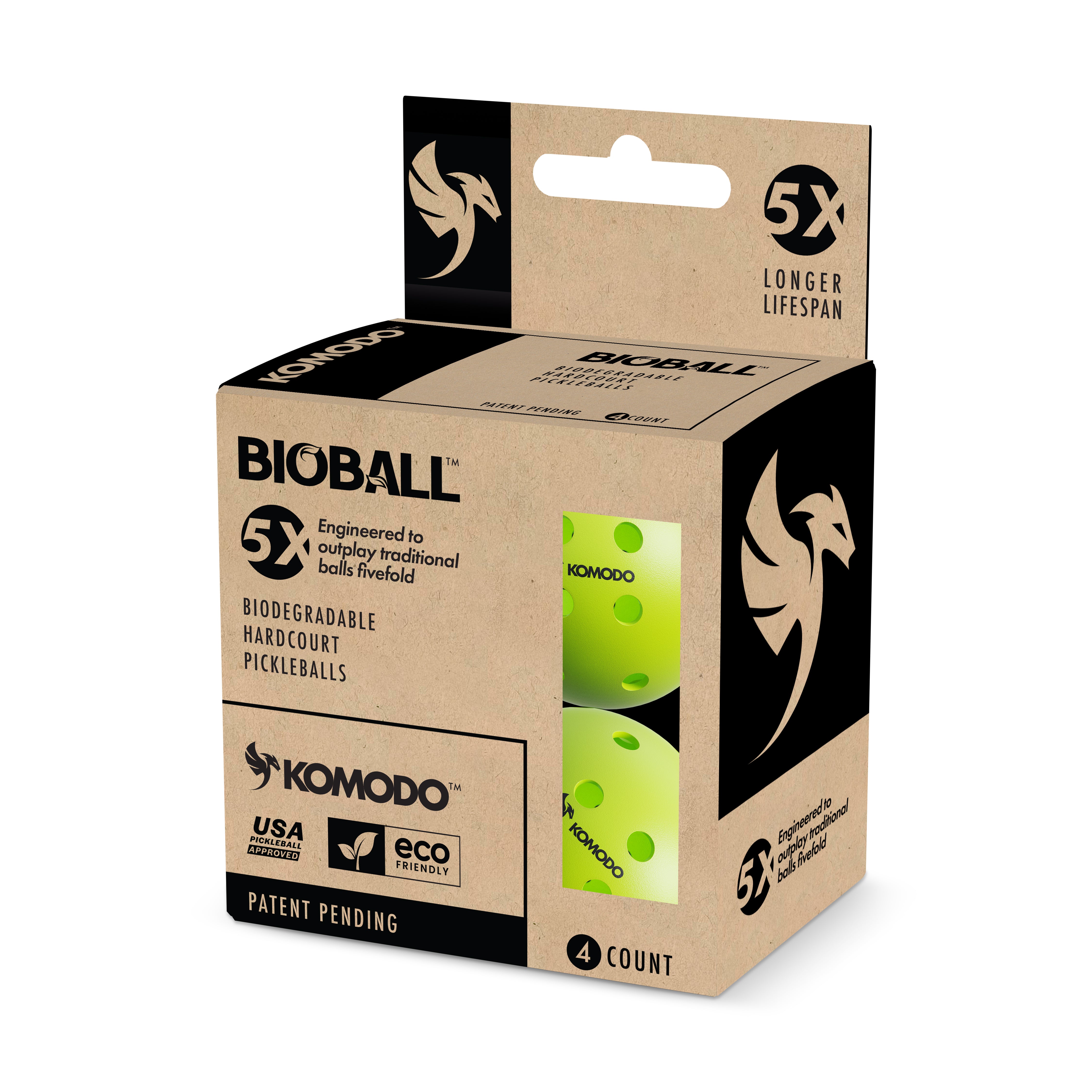
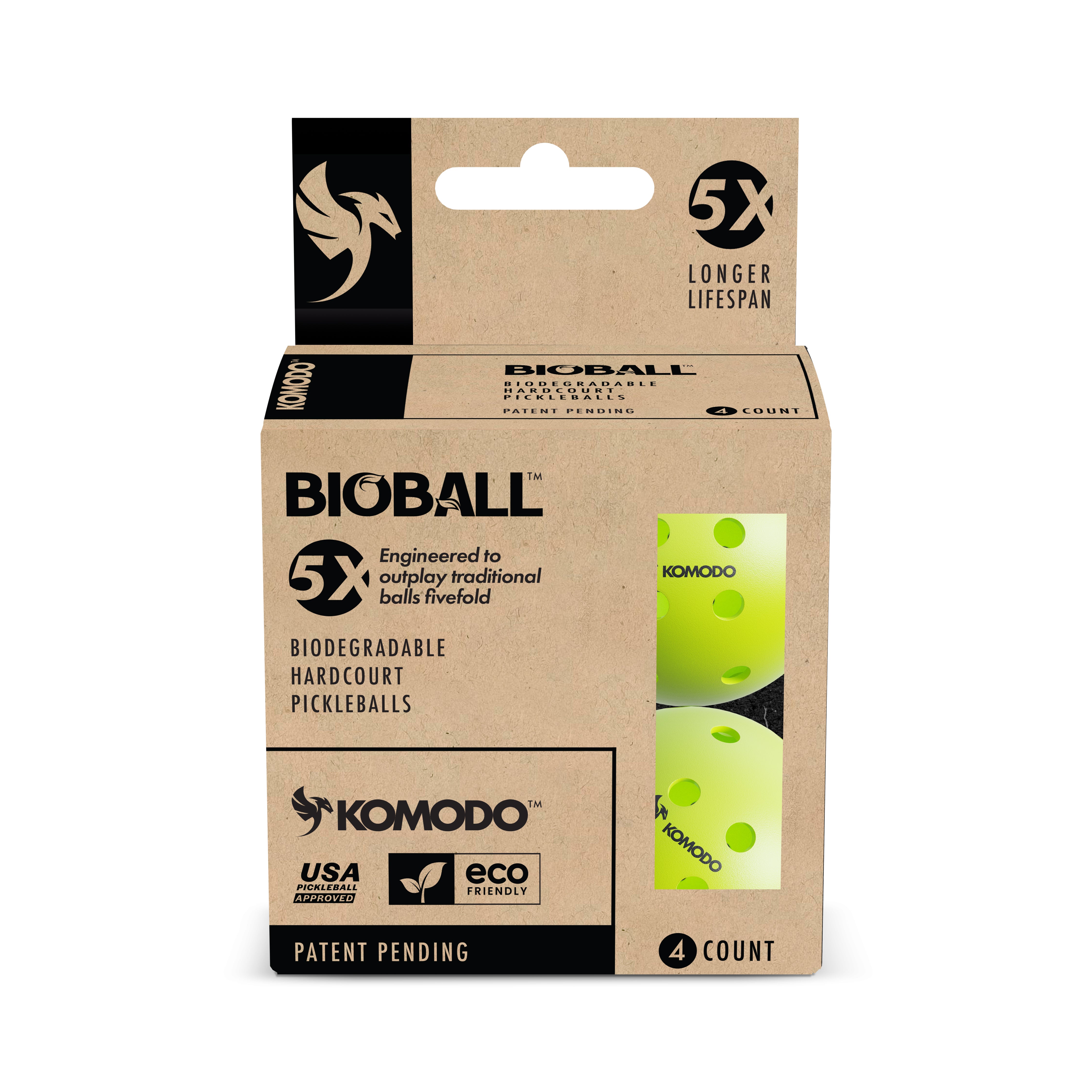
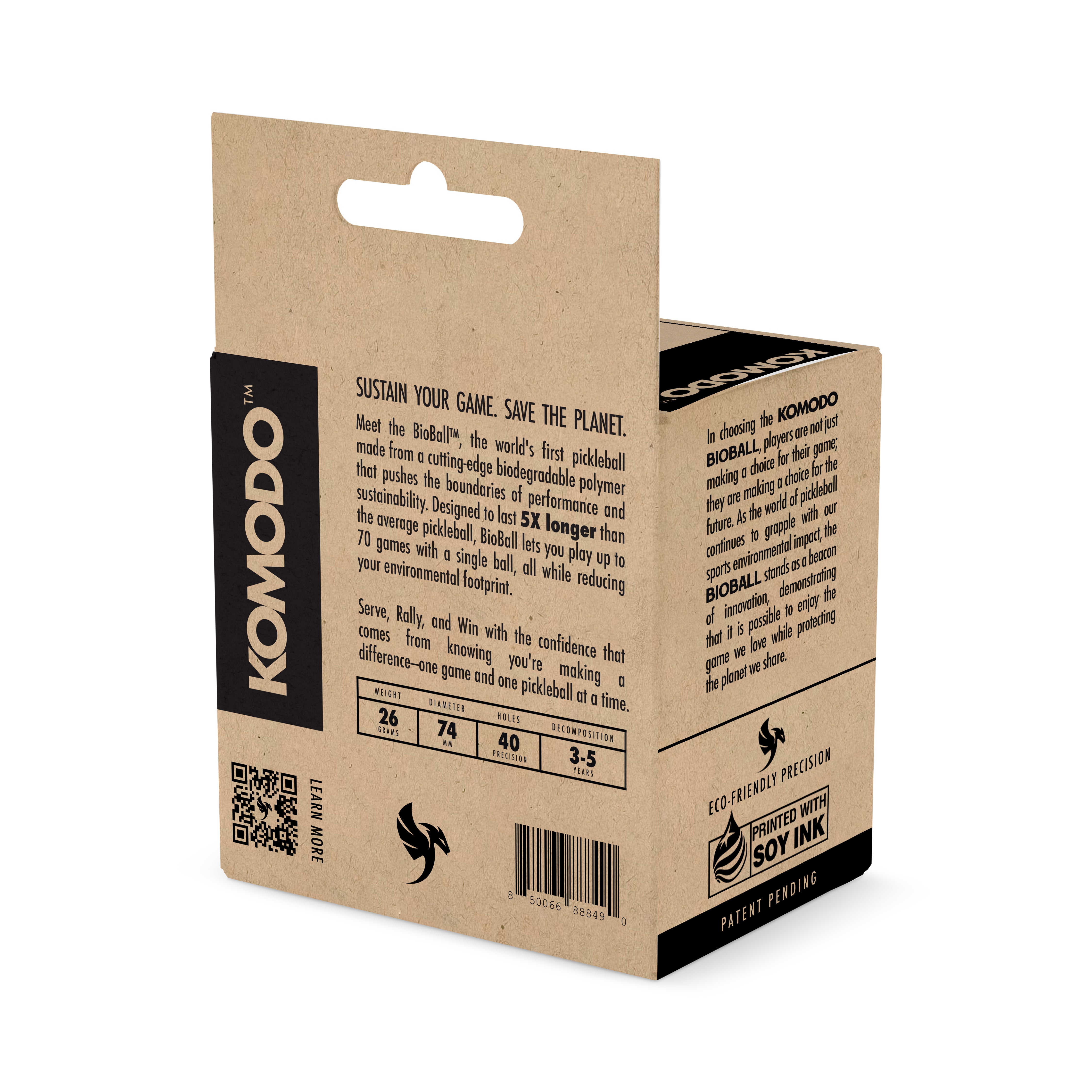
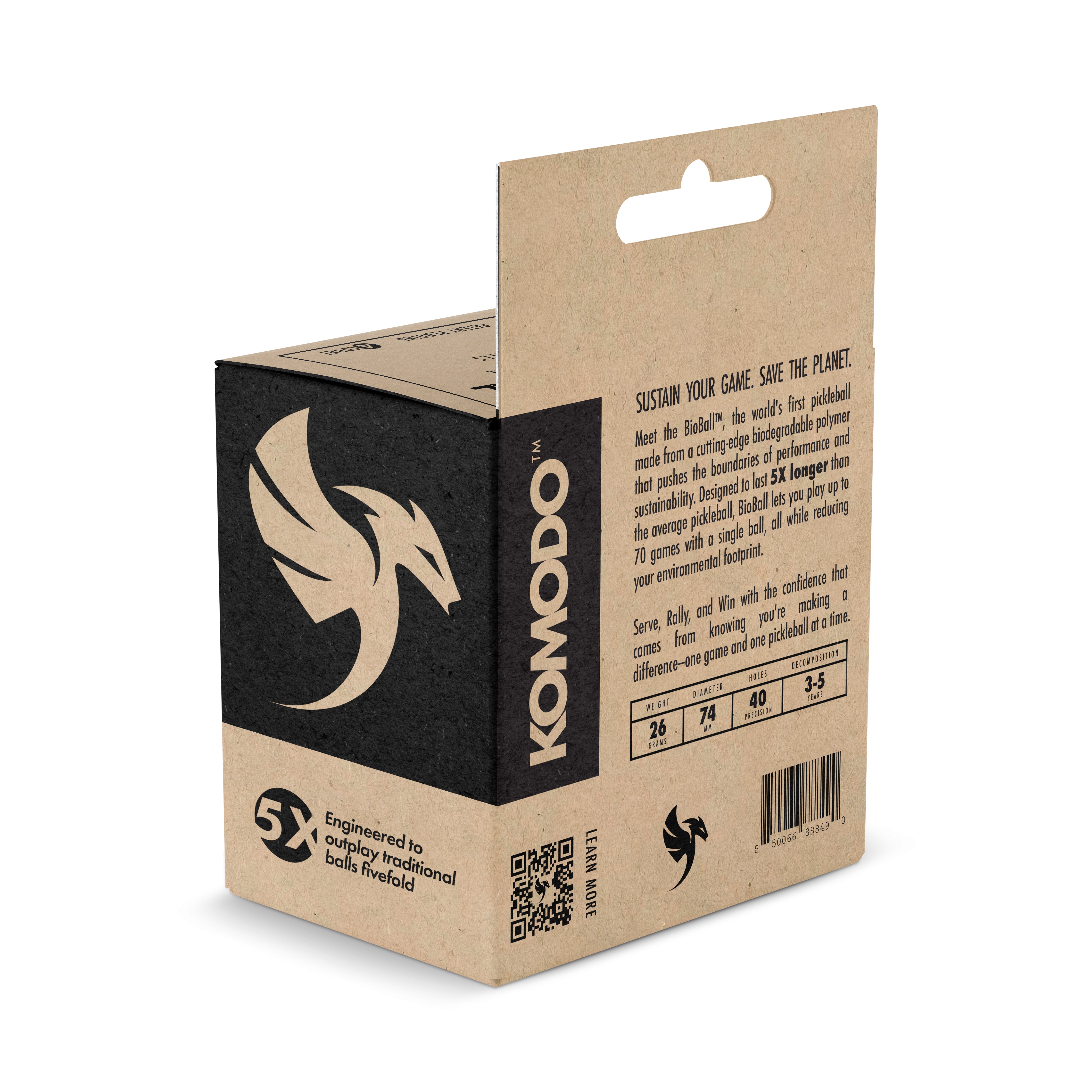
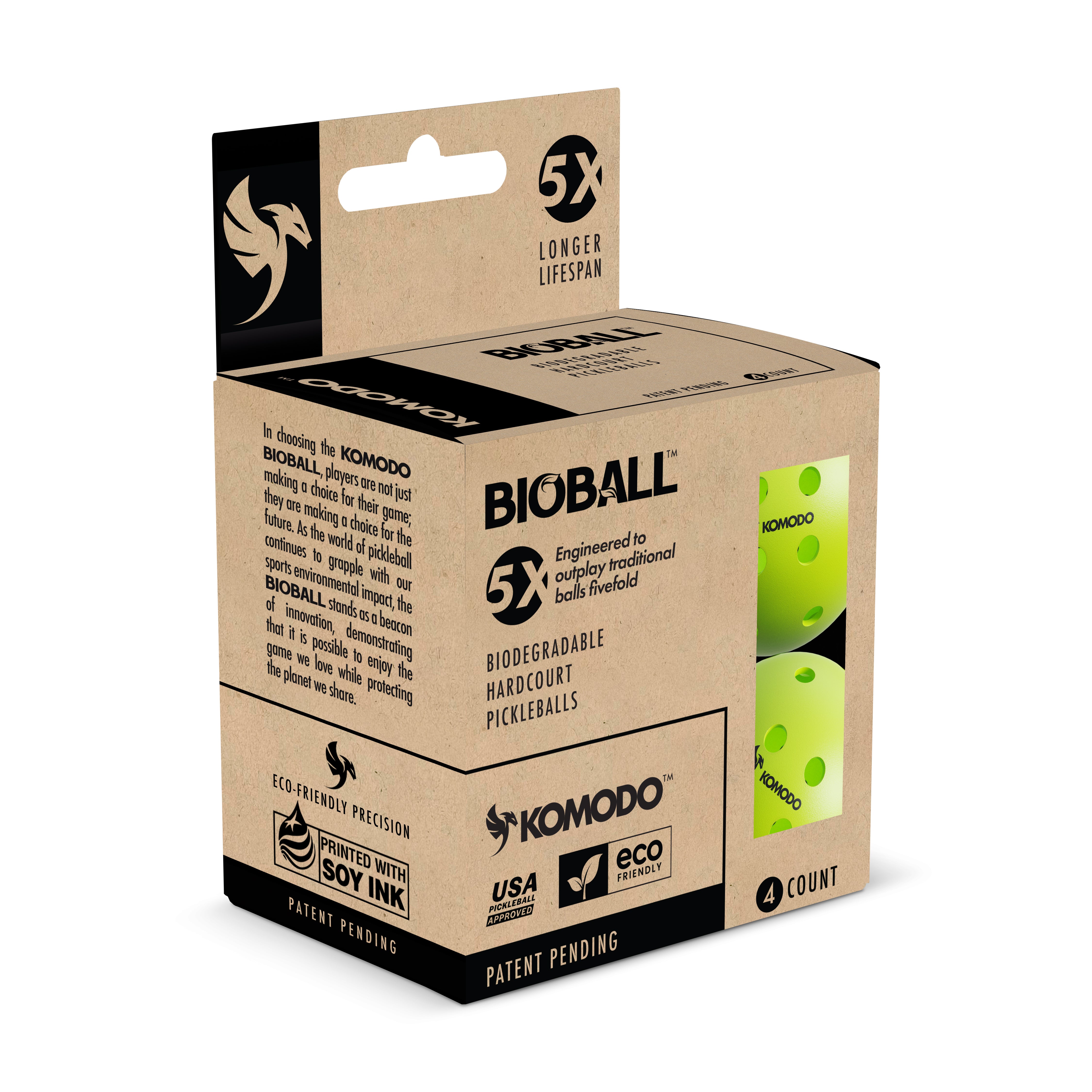
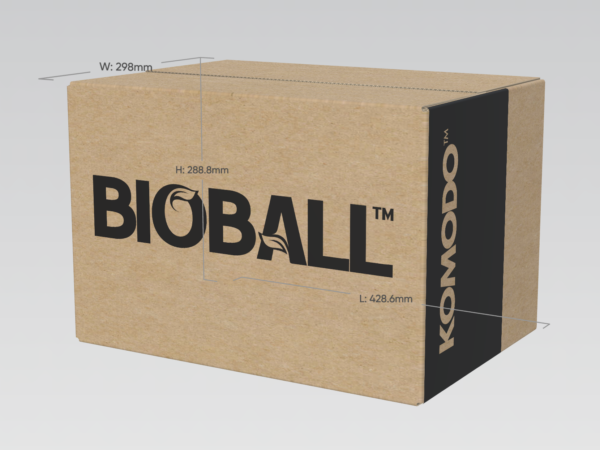
What is Biodegradability and why is it important?
Komodo believes in the importance of protecting our planet, enhancing sustainability, and reducing the negative human impact on the planet. We are proud to announce that, based upon independent scientific testing conducted on the BioBall and the proprietary acceleration additive in this product, Komodo’s BioBall is expected to break down entirely within three to five years under normal U.S. landfill conditions.
The BioBall is not classified as “Biodegradable” under Current State and U.S. Federal Standards. At Komodo transparency with our customers is a core value and Komodo is not intending to mislead consumers regarding any terminology Komodo uses. As a customer it is important for you to be aware that Komodo expressly acknowledges that its BioBall™ is not “biodegradable” as defined under state or federal standards, laws, or regulations. For example, the Federal Trade Commission (FTC) has created its “Green Guides” as a general, non-binding set of principles that the FTC applies to all environmental marketing claims.[i][ii] In doing so, the FTC decided it does not consider a product “biodegradable” unless it will completely decompose within one year within a U.S. landfill or other covered facility.[iii] In light of this definition, Komodo is not making claims of biodegradability, degradability, compostability, recyclability, or similar claims, and by purchasing the Bioball, such buyer agrees that the purchase is not based upon such claims under any government standards.
The company is providing this additional information and independent laboratory study results to help our potential and current customers understand what makes the BioBall unique.
While not currently considered “degradable” under Federal nor state definitions, Komodo’s BioBallTM is deemed biodegradable under the ASTM D5511 international standards, which is a major achievement and advancement in the pickleball space. Formed in 1902, ASTM International is a 122-year-old standards organization on the leading edge of developing and publishing voluntary consensus technical international standards for a wide range of materials, products, systems and services. ASTM D5511 and (its equivalent ISO 15985) specifies a method of determining the degree and rate of anaerobic biodegradation of plastic materials in high-solids anaerobic conditions.[iv]
[i] https://www.ftc.gov/news-events/topics/truth-advertising/green-guides
[ii] https://www.ftc.gov/sites/default/files/documents/federal_register_notices/guides-use-environmental-marketing-claims-green-guides/greenguidesfrn.pdf
[iii] 16 CFR 260.8(c)
[iv] https://www.aropha.com/ASTM-D5511.html
The Science Behind Accelerated Decomposition. Accelerated decomposition is a critical factor in the environmental impact of products, particularly those made from plastic or similar materials. An accelerated decomposition product is one that breaks down more quickly through natural processes, unlike traditional plastics that often fragment into microplastics rather than fully decomposing.
The BIOBALL’S innovative composition is the result of extensive research and development. The materials used in its construction are designed to interact with the natural environment in a way that promotes decomposition. When exposed to the elements, the BIOBALL™ will begin to break down through a combination of physical, chemical, and biological processes. This degradation process is influenced by factors such as temperature, humidity, and the presence of microorganisms, ensuring that the ball decomposes effectively in a variety of environments.
One of the challenges in creating a pickleball with accelerated decomposition was maintaining the balance between sustainability and durability. Traditional plastics are valued for their resistance to environmental factors, but this same resistance is what makes them remain intact in the environment for centuries.
The KOMODO BIOBALL’S innovative material composition addresses this challenge by being durable enough to withstand the demands of pickleball play, yet responsive enough to begin expedited decomposition upon ordinary disposal.
Why Komodo has taken on this Challenge – Combatting the Environmental Impact of Traditional Pickleballs.
In a world increasingly aware of the environmental challenges it faces, sports and recreational activities are not exempt from scrutiny. Pickleball, one of the fastest-growing sports globally, has captivated players with its blend of tennis, badminton, and ping-pong. Yet, this growing popularity comes with a hidden cost. Each year, millions[E1] of pickleballs are discarded, contributing to the ever-growing waste in landfills, where traditional plastic pickleballs can take over a century to decompose. This issue poses a significant environmental challenge, contradicting the ethos of a game that encourages healthy living and outdoor enjoyment.
While the sport of pickleball continues to flourish, the environmental impact of non-sustainable pickleballs cannot be ignored. The need for a sustainable alternative has never been more urgent. Pickleball, with its rapid rise in popularity, has seen a corresponding increase in the demand for equipment. Central to the game is the pickleball itself, a lightweight, perforated ball is integral to the fast-paced, strategic nature of the sport. However, traditional pickleballs are made from non-sustainable polymers, typically polyethylene or similar plastic compounds. These materials are chosen for their durability, resistance to cracking on impact, and consistent performance on the court. Unfortunately, these same characteristics make them environmentally problematic.
Komodo has launched a revolutionary solution: the BIOBALL™, the world's first pickleball designed for accelerated decomposition in accordance with ASTM D5511 testing and certification standards. In addition to the benefit of breaking down much more rapidly under typical disposal conditions compared to other plastic balls, this product also boasts a lifespan that is 5x longer than its competitors. This added lifespan offers a further environmental benefit as it effectively reduces the total number of balls being disposed of in each period of use. Combining state-of-the-art technology, precision engineering, and environmental consciousness, the BIOBALL™ represents a new era in sport, where sustainability and performance go hand in hand.
What about Recycling?
According to a recent article published under the University of California Berkeley’s California Management Review, only 32.1% of America’s waste is recycled or composted.[i] Further, “America’s dated approach to recycling is also bad for the environment. About 1.8 million acres of land in the U.S. is lost to landfills.”[ii] China’s refusal to remain the west’s plastics dumping ground is also forcing the world to confront its waste crisis.[iii] Since 2019, many U.S. cities have been scaling back, if not entirely eliminating, their recycling programs.[iv] In fact, the University of Georgia has estimated that China’s ban on imported recyclables will leave 111 million metric tons of trash from around the world with nowhere to go by 2030.[v]
In addition to the general recycling epidemic, the different types of plastics used in pickleball production can be difficult to separate, further hindering the recycling process. This is because “most pickleballs are made from a combination of plastic materials, such as polypropylene or HDPE (high-density polyethylene).”[vi] Taking this into account, it is all but certain that most discarded pickleballs end up in landfills.
A Higher Standard. The KOMODO BIOBALL™ is redefining the standards for pickleball, seamlessly blending top-tier performance with environmental responsibility. This innovative ball not only upholds the high standards of precision, control, and consistent flight that players demand, but also introduces a groundbreaking shift in sustainability, durability, and overall lifespan.
The true innovation of the BIOBALL™ lies in its material composition. Unlike traditional pickleballs made from non-sustainable plastics, the BIOBALL™ is manufactured from a proprietary blend of materials engineered for accelerated decomposition. These materials are designed to break down over time through natural processes, leaving behind no harmful residues. Once discarded, the BIOBALL will decompose in a fraction of the time it takes for conventional pickleballs, reducing the long-term environmental impact of the sport.
Exceptional Performance The BIOBALL™ is engineered for excellence on the court. Its lightweight construction and aerodynamic design ensure agility and responsiveness, making it perfect for both casual backyard matches and high-stakes tournaments. The 40 precision-machined holes enhance stability in flight while reducing drag, allowing for fast-paced rallies and dynamic gameplay. This combination of speed, control, and predictability ensures that the BIOBALL™ delivers the performance needed to compete at any level.
Sustainable Innovation Beyond its impressive performance, the BIOBALL™ represents a significant leap towards eco-conscious sports equipment. As the first pickleball designed for accelerated decomposition, it addresses the environmental impact of traditional plastic balls. By transitioning to the BIOBALL™, players contribute to reducing plastic waste, aligning their equipment choices with their environmental values. This shift not only minimizes the ecological footprint of the game but also sets a new benchmark for sustainability in sports.
A New Standard for the Sport The introduction of the BIOBALL™ is a pivotal moment for pickleball. It demonstrates that eco-friendly alternatives can match and even surpass the performance of conventional products. For recreational players, the BIOBALL™ offers an effective way to enjoy the sport while reducing their environmental impact. At the competitive level, it meets official tournament standards, allowing players to switch without sacrificing performance. Tournament organizers and communities embracing sustainability will drive the growth of this eco-friendly equipment, setting an example for others to follow.
A New Era for Pickleball The BIOBALL™ represents more than just a new product; it embodies a shift in how we approach sustainability in sports. By addressing the environmental impact of traditional pickleballs, the BIOBALL™ offers a solution that aligns with the values of both players and the broader community. Its innovative design, superior performance, and sustainable composition make it a game-changer in the world of pickleball.
As players and communities embrace the BIOBALL™, the sport of pickleball will move closer to achieving a sustainable future. The introduction of pickleballs designed for accelerated decomposition is a critical step in reducing the environmental impact of recreational activities, and the BIOBALL™ leads the way with a product that delivers on its promises. Whether you're a seasoned player or new to the game, KOMODO invites you to escape from Pickleball Mountain, where the game is played with precision, passion, and a commitment to the planet.
In choosing the BIOBALL™, players are not just making a choice for their game; they are making a choice for the future. As the world continues to grapple with environmental challenges, the BIOBALL™ stands as a beacon of innovation, demonstrating that it is possible to enjoy the sport we love while protecting the planet we share. Serve, Rally, and Win with the confidence that comes from knowing you're making a difference—one game and one pickleball at a time.
[i] “America’s Broken Recycling System” by Christian Blanco, Calvin Spanbauer, and Sara Stienecker, May 30, 2023 retrieved on August 26, 2024 from https://cmr.berkeley.edu/about/publication-information/
[ii] Id. Citing: EPA, “National Overview: Facts and Figures on Materials, Wastes and Recycling,” December 2022, https://www.epa.gov/facts-and-figures-about-materials-waste-and-recycling/national-overview-facts-and-figures-materials.
[iii] “Why the world’s recycling system stopped working” Financial Times Magazine, by Leslie Hook and John Reed, published October 24, 2018, retrieved August 26, 2024: https://www.ft.com/content/360e2524-d71a-11e8-a854-33d6f82e62f8
[iv] “Hundreds of US cities are killing or scaling back their recycling programs” by Chavie Lieber
Mar 18, 2019, retrieved on August 26, 2024: https://www.vox.com/the-goods/2019/3/18/18271470/us-cities-stop-recycling-china-ban-on-recycles
[v] “The Chinese import ban and its impact on global plastic waste trade”
SCIENCE ADVANCESVOL. 4, NO. 6, published June 20, 2018, retrieved on August 26, 2024: https://www.science.org/doi/10.1126/sciadv.aat0131
[vi]https://www.theskilledpickle.com/blog/pickleball-balls-recyclable#:~:text=Challenges%20in%20recycling%20pickleballs&text=These%20materials%20are%20durable%20and,separate%2C%20hindering%20the%20recycling%20process.



